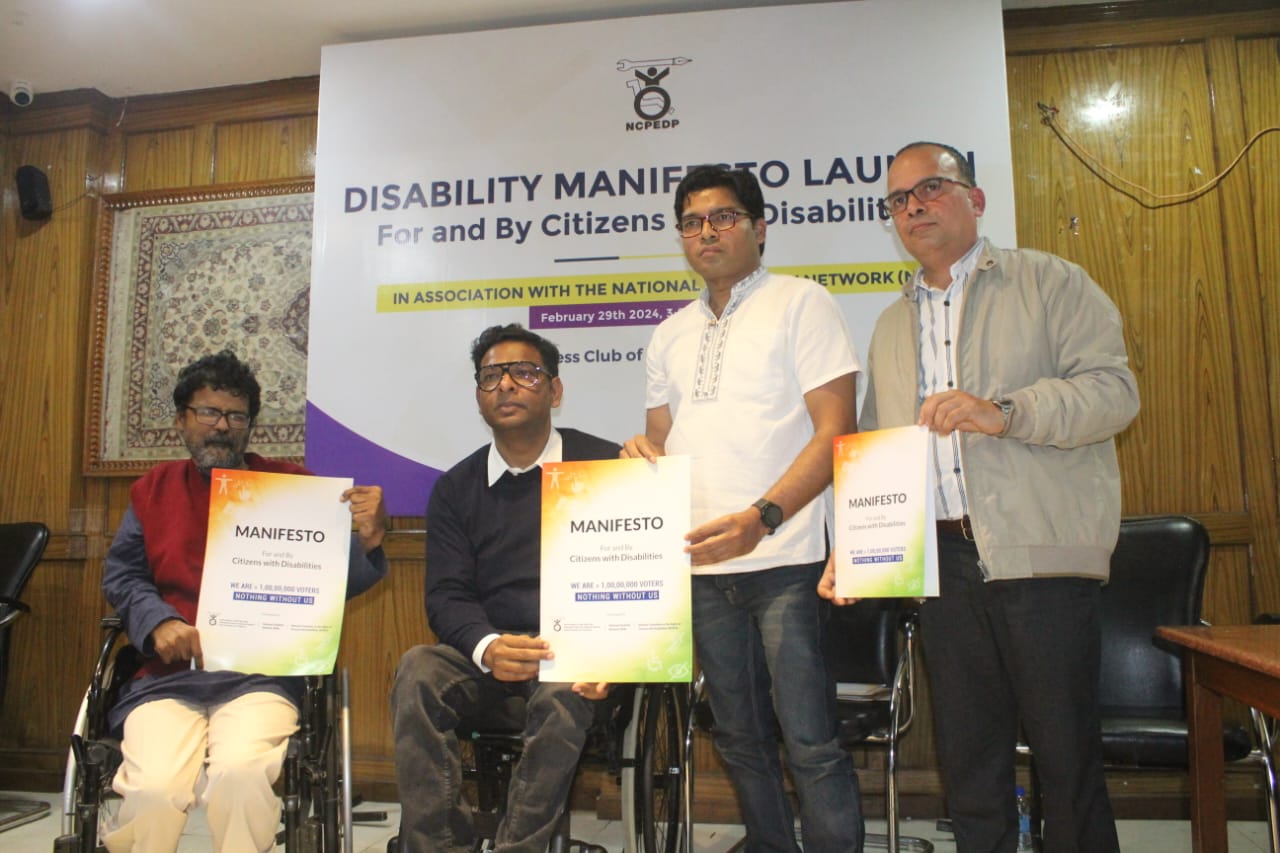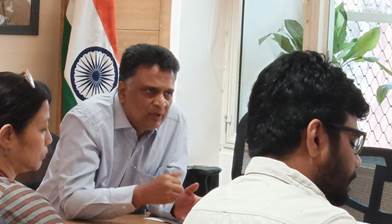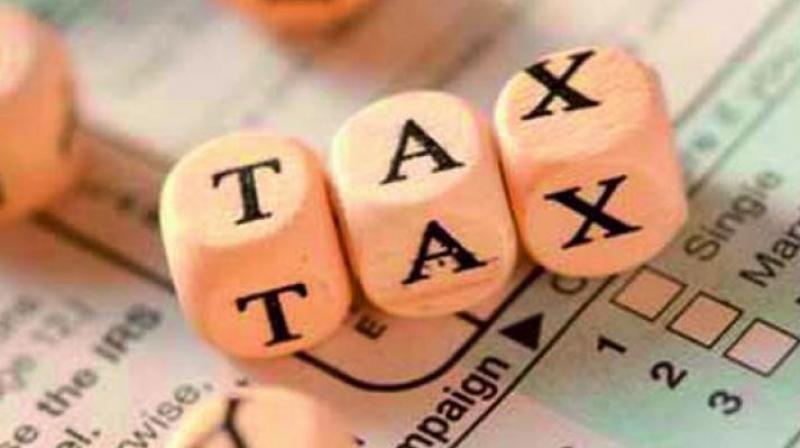Disabled People matter! Disability groups launch a first-of-its kind Manifesto asking for a seat on the policy table
Author: BI Bureau

New Delhi: In a first-of-its-kind initiative in the country, a Manifesto - Manifesto For and By Citizens with Disabilities - was launched on Thursday by disability rights groups, led by National Centre for Promotion of Employment for Disabled People (NCPEDP) in collaboration with the National Disability Network (NDN), urging political parties to prioritise and address the issues of disabled community in the upcoming Lok Sabha elections. Emphasising the need for equal treatment, disability rights advocates called on political parties to prioritise the agenda of persons with disabilities and to seriously consider persons with disabilities as a decisive voting bloc.
“As the Lok Sabha Elections 2024 draw near, citizens with Disabilities, which form 7% of the population of India and there are more than 1 crore registered voters, as per the Election Commission, it is essential that the voices of persons with disabilities are heard in the discussions around the 2024 General Elections. This is not only because they represent sizable votes but, more importantly, because they are a large consumer of goods and services and thus contributors to socio-economic development and GDP,” said Arman Ali, Executive Director of NCPEDP.
The disability manifesto represents the culmination of extensive national and regional consultations with a diverse array of stakeholders, encapsulating the pressing concerns and demands of the disabled community across India. NCPEDP, in collaboration with the National Disability Network (NDN) and the National Committee on Rights of Persons with Disabilities (NCRPD), invited inputs from more than 10,000 people with & without disabilities across the country. Based on these inputs, the ground-breaking Disability Manifesto of India, comprising 10 critical demands and representing the voices of people across the country, was formulated.
The manifesto emphasises the critical need for political parties to prioritise mainstreaming of people with disabilities in their 5- year action plans for the upcoming elections. The Disability Manifesto addresses a wide spectrum of issues ranging from budgetary allocation to health insurance, accessibility, social security, socio-political inclusion, economic participation, climate change, gender equality, sports, and education.
Here are the key demands of the manifesto:
1. Budgetary Allocation - Allocate 5% of the total budget allocation for persons with disabilities; release disability budget statement.
2. Health Insurance – Announce a policy that promotes affordable and accessible health insurance & protects people with disabilities from non-discrimination. Announce a scheme which is lines with Ayushman Bharat for persons with Disabilities.
3. Accessibility - Make all public and private spaces/products/services accessible for disabled people by 2026. Introduce compliance guidelines for businesses.
4. Social Security – Increase the monthly pension to Rs. 5000/- for disabled people under the National Social Assistance Program; prioritise disability linkage in social security schemes.
5. Socio-Political Inclusion - Amend Article 15 to include the word disability; provide 5% reservation in governance; reservation & nomination of people with disabilities in Rajya Sabha by the President of India.
6. Economic Participation – Fill backlog vacancies by 2027; introduce “Access to Work” scheme; for providing Reasonable Accommodation ensure disability inclusion in MSME programs.
7. Climate Change - Form dedicated Climate Change Mission for vulnerable communities; ensure real-time data collection for disabled in disaster management.
8. Gender Equality - Establish a sub-scheme for digital literacy and smartphone access for girls & women with disabilities; Announce policies that promote equal participation & protect women and girls with disabilities against violence and abuse
9. Sports - Establish state-of-the-art Sports Infrastructure based on the principles of Universal Design for para- athletes.
10. Education - Implement data-driven strategy for enhanced enrolment and completion of mainstream education for disabled children by 2029. Ensure enrolment rate in higher education to be in line with National Gross Average i.e., 23.4%.
Ali asserted, "It's high time we move beyond disability-specific concerns. Employment, accessibility, and education are non-negotiable, but we must also engage with mainstream issues. Only by becoming a unified voice can we hope to be truly heard. We would also urge the political parties to not only have a specific section of persons with disabilities in the manifestos but include disability specific concerns in all schemes & policies announced in their manifestos.”
The manifesto launch conference was attended by Rama Chari from Diversity and Equal Opportunity Centre (DEOC); Rajiv Rajan, Executive Director Ekta Chennai based disability rights activist; Pradeep Raj from Association for Disabled People; Radhika Alkazi from AASTHA; Representative from National Association for Deaf (NAD); and Representatives from All India Confederation of the Blind among others.
Disability Manifesto serves as a clarion call to political parties to prioritise the rights and needs of persons with disabilities in their policy agendas. It highlights the challenges faced by the disabled people and demands a more inclusive and equitable society, where every citizen can actively participate and contribute to the nation-building. /BI
More In Public Affairs
NEP-2020 aspires for inclusive excellence in school education
Rajeev Ranjan Roy
The New Education Policy-2020 (NEP-2020), unveiled recently, aims at achieving excellence in school learning by imparting quality, affordable and inclusive education to all, with an extra emphasis on those children coming from socially and educationally disadvantaged groups of the society. It is a futuristic endeavour towards building Ek Bharat, Shrestha Bharat. The previous education policies largely focussed on the issues of access and equity in giving school education, while the NEP-2020 commits to laying the foundation of a vibrant Bharat where no one is devoid of a kind of school education, which helps every student become an asset for the nation in a true sense. The unfinished agenda of the National Policy on Education 1986, which was modified in 1992, has been effectively dealt with in the NEP-2020 along with the vision behind the Right to the Free and Compulsory Education Act, 2009, which “laid down legal underpinnings for achieving universal elementary education.”
Given the undisputed role of education in nation building, the NEP-2020 rightly lays the stress on standardization and accreditation of school infrastructure and teachers as well, since education with accountability, transparency and affordability is the need of the hour, and hence the need to “empower schools, teachers with trust, enabling them to strive for excellence and perform at their very best, while ensuring the integrity of the system through the enforcement of complete transparency and full public disclosure of all finances, procedures and outcomes.” Since private sector is significantly present in the field of school education, the idea to promote ‘not-for-profit’ entities is a unique feature of NEP-2020, which at the same time intends to promote private philanthropic efforts for quality education, thereby affirming the public-good nature of education, while protecting parents and communities from arbitrary increase in tuition fees.
An equally important area, which has got due attention in the NEP-2020 is the need for efficient resourcing and effective governance through school complexes and clusters, a significant initiative in view of the fact that nearly 28 per cent of India’s public primary schools and 14.8 per cent of upper primary schools have less than 30 students. The average number of students per grade in the elementary schooling system – Grades 1 to 8 – is about 14, with a notable proportion having below six students during 2016-17, the year which also had 1,08,017 single-teacher schools, and majority of them – 85,743 – being primary schools taking care of Grades 1-5 children. It was, therefore, a pressing need to evolve a mechanism for establishing a grouping structure, say, school complexes, consisting of one secondary school together with all other schools, which lead to greater resource efficiency and more effective functioning, coordination, leadership, governance, and management of schools in the cluster. This will not only ensure optimum utilisation of resources, but will also foster the sense of oneness and togetherness among the school children, who are the future of the nation.
What further makes the New Education Policy-2020 uniquely special is its pledge for equitable and inclusive education for all, one of the great dreams of our founding fathers. Education, as the NEP-2020 rightly envisions, is “the single greatest tool for achieving social justice and quality.” Inclusive and equitable education, indeed an essential goal in its own right, is also critical to achieving a social order where every citizen has “the opportunity to dream, thrive, and contribute to the nation.” Quality, affordable and ethical education to all is the first move to break multiple social and economic barriers, which sow the seeds of exclusion, discrimination and exploitation against our own people on different parochial considerations.
Needless to say efforts were made in the past as well to bridge the educational chasm between socially and educationally disadvantaged groups (SEDGs) and the children of top social strata, but the desired results remained elusive. SEDGs account for the country’s overwhelming population, but their children’s share in quality school educational institutions has been minimal over the years. Early childhood care and education (ECCE) needs to be handled more comprehensively. According to the Unified-District Information System for Education (U-DISE) 2016-17 data, about 19.6 per cent of students belonged to Scheduled Castes (SCs) at the primary level, but this fraction fell to 17.3 per cent at the higher secondary level. These enrollment drop-outs were more severe for ST students (10.6 per cent to 6.8 per cent), and differently-abled children (1.1 per cent to 0.25 per cent), with even greater declines for female students within each of these categories. Thus, there is no scope for any complacency on the part of the government. A series of interventions including better facilities, more and more hostels, scholarships and other enabling support have been provisioned in the NEP-2020 so that the idea of ‘learning for all’ is realised in a more comprehensive manner.
Teachers are not only an integral part of an education system, but the most important stakeholder in the entire gamut of things. Their quality and ability to teach school students, when they are in their formative age, become something of paramount importance. From their recruitment to training, every precaution needs to be taken to ensure that school education is not rendered to a mere formality, but becomes a game changer. The New Education Policy-2020 comes with a basket full of tools and parameters to ensure holistic training and upgradation of teachers and their teaching skills in a sustainable manner. From continuous professional development (CPD) to career management and progression (CMP), the NEP-2020 vouches for a set of common guidelines – National Professional Standards for Teachers (NPST), which will be put in place by the National Council for Teacher Education (NCTE) in its restructured new form as the Professional Standard Setting Body (PSSB) under the General Education Council. This exercise will be carried out in consultation with National Council Educational Research and Training (NCERT), SCERTs, teachers from across levels and regions.
The teacher education will also undergo a sea-change. By 2030, the minimum degree qualification for teaching will be a 4-year integrated B.Ed. that teaches a range of knowledge content. Today B.Ed. teaching is most poorly regulated in our country ever since the standalone B.Ed. colleges were allowed to be opened up in the private sector. It is high time to take B.Ed. teaching more than seriously. The NEP-2020 stipulates that by 2021, a new and comprehensive National Curriculum Framework for Teacher Education (NCFTE-2021) will be formulated by the NCTE. NCFTE, which will also factor in the requirements of teacher education curricula for vocational education, will be revised once every 5-10 years.
In conclusion, the NEP-2020 visualizes to impart a school education which lays the foundation of a self-reliant India and also to help our country emerge as a knowledge hub. From the foundation of learning to foundational literacy and numeracy to checking drop outs and ensuring universal access to education for all and at all levels to the restructuring of school curriculum, India is in for a metamorphosis in the field of school education, recognizing, identifying and fostering the unique capabilities of each student. Tools such as multi disciplinarity, emphasis on conceptual understanding, creativity and critical thinking, ethics and human and constitutional values, full equity and inclusion, and light but tight regulatory framework are bound to do wonders. Education is a public service, a rare pursuit in nation building, which should be holistic and inclusive and must make one take pride in India and its rich, diverse, ancient and modern culture and knowledge systems and tradition. The NEP-2020 aspires so, indeed!
( The writer is a senior journalist and author. The views expressed are strictly personal.)
NEP-2020 aspires for inclusive excellence in school education
Rajeev Ranjan Roy
The New Education Policy-2020 (NEP-2020), unveiled recently, aims at achieving excellence in school learning by imparting quality, affordable and inclusive education to all, with an extra emphasis on those children coming from socially and educationally disadvantaged groups of the society. It is a futuristic endeavour towards building Ek Bharat, Shrestha Bharat. The previous education policies largely focussed on the issues of access and equity in giving school education, while the NEP-2020 commits to laying the foundation of a vibrant Bharat where no one is devoid of a kind of school education, which helps every student become an asset for the nation in a true sense. The unfinished agenda of the National Policy on Education 1986, which was modified in 1992, has been effectively dealt with in the NEP-2020 along with the vision behind the Right to the Free and Compulsory Education Act, 2009, which “laid down legal underpinnings for achieving universal elementary education.”
Given the undisputed role of education in nation building, the NEP-2020 rightly lays the stress on standardization and accreditation of school infrastructure and teachers as well, since education with accountability, transparency and affordability is the need of the hour, and hence the need to “empower schools, teachers with trust, enabling them to strive for excellence and perform at their very best, while ensuring the integrity of the system through the enforcement of complete transparency and full public disclosure of all finances, procedures and outcomes.” Since private sector is significantly present in the field of school education, the idea to promote ‘not-for-profit’ entities is a unique feature of NEP-2020, which at the same time intends to promote private philanthropic efforts for quality education, thereby affirming the public-good nature of education, while protecting parents and communities from arbitrary increase in tuition fees.
An equally important area, which has got due attention in the NEP-2020 is the need for efficient resourcing and effective governance through school complexes and clusters, a significant initiative in view of the fact that nearly 28 per cent of India’s public primary schools and 14.8 per cent of upper primary schools have less than 30 students. The average number of students per grade in the elementary schooling system – Grades 1 to 8 – is about 14, with a notable proportion having below six students during 2016-17, the year which also had 1,08,017 single-teacher schools, and majority of them – 85,743 – being primary schools taking care of Grades 1-5 children. It was, therefore, a pressing need to evolve a mechanism for establishing a grouping structure, say, school complexes, consisting of one secondary school together with all other schools, which lead to greater resource efficiency and more effective functioning, coordination, leadership, governance, and management of schools in the cluster. This will not only ensure optimum utilisation of resources, but will also foster the sense of oneness and togetherness among the school children, who are the future of the nation.
What further makes the New Education Policy-2020 uniquely special is its pledge for equitable and inclusive education for all, one of the great dreams of our founding fathers. Education, as the NEP-2020 rightly envisions, is “the single greatest tool for achieving social justice and quality.” Inclusive and equitable education, indeed an essential goal in its own right, is also critical to achieving a social order where every citizen has “the opportunity to dream, thrive, and contribute to the nation.” Quality, affordable and ethical education to all is the first move to break multiple social and economic barriers, which sow the seeds of exclusion, discrimination and exploitation against our own people on different parochial considerations.
Needless to say efforts were made in the past as well to bridge the educational chasm between socially and educationally disadvantaged groups (SEDGs) and the children of top social strata, but the desired results remained elusive. SEDGs account for the country’s overwhelming population, but their children’s share in quality school educational institutions has been minimal over the years. Early childhood care and education (ECCE) needs to be handled more comprehensively. According to the Unified-District Information System for Education (U-DISE) 2016-17 data, about 19.6 per cent of students belonged to Scheduled Castes (SCs) at the primary level, but this fraction fell to 17.3 per cent at the higher secondary level. These enrollment drop-outs were more severe for ST students (10.6 per cent to 6.8 per cent), and differently-abled children (1.1 per cent to 0.25 per cent), with even greater declines for female students within each of these categories. Thus, there is no scope for any complacency on the part of the government. A series of interventions including better facilities, more and more hostels, scholarships and other enabling support have been provisioned in the NEP-2020 so that the idea of ‘learning for all’ is realised in a more comprehensive manner.
Teachers are not only an integral part of an education system, but the most important stakeholder in the entire gamut of things. Their quality and ability to teach school students, when they are in their formative age, become something of paramount importance. From their recruitment to training, every precaution needs to be taken to ensure that school education is not rendered to a mere formality, but becomes a game changer. The New Education Policy-2020 comes with a basket full of tools and parameters to ensure holistic training and upgradation of teachers and their teaching skills in a sustainable manner. From continuous professional development (CPD) to career management and progression (CMP), the NEP-2020 vouches for a set of common guidelines – National Professional Standards for Teachers (NPST), which will be put in place by the National Council for Teacher Education (NCTE) in its restructured new form as the Professional Standard Setting Body (PSSB) under the General Education Council. This exercise will be carried out in consultation with National Council Educational Research and Training (NCERT), SCERTs, teachers from across levels and regions.
The teacher education will also undergo a sea-change. By 2030, the minimum degree qualification for teaching will be a 4-year integrated B.Ed. that teaches a range of knowledge content. Today B.Ed. teaching is most poorly regulated in our country ever since the standalone B.Ed. colleges were allowed to be opened up in the private sector. It is high time to take B.Ed. teaching more than seriously. The NEP-2020 stipulates that by 2021, a new and comprehensive National Curriculum Framework for Teacher Education (NCFTE-2021) will be formulated by the NCTE. NCFTE, which will also factor in the requirements of teacher education curricula for vocational education, will be revised once every 5-10 years.
In conclusion, the NEP-2020 visualizes to impart a school education which lays the foundation of a self-reliant India and also to help our country emerge as a knowledge hub. From the foundation of learning to foundational literacy and numeracy to checking drop outs and ensuring universal access to education for all and at all levels to the restructuring of school curriculum, India is in for a metamorphosis in the field of school education, recognizing, identifying and fostering the unique capabilities of each student. Tools such as multi disciplinarity, emphasis on conceptual understanding, creativity and critical thinking, ethics and human and constitutional values, full equity and inclusion, and light but tight regulatory framework are bound to do wonders. Education is a public service, a rare pursuit in nation building, which should be holistic and inclusive and must make one take pride in India and its rich, diverse, ancient and modern culture and knowledge systems and tradition. The NEP-2020 aspires so, indeed!
( The writer is a senior journalist and author. The views expressed are strictly personal.)



